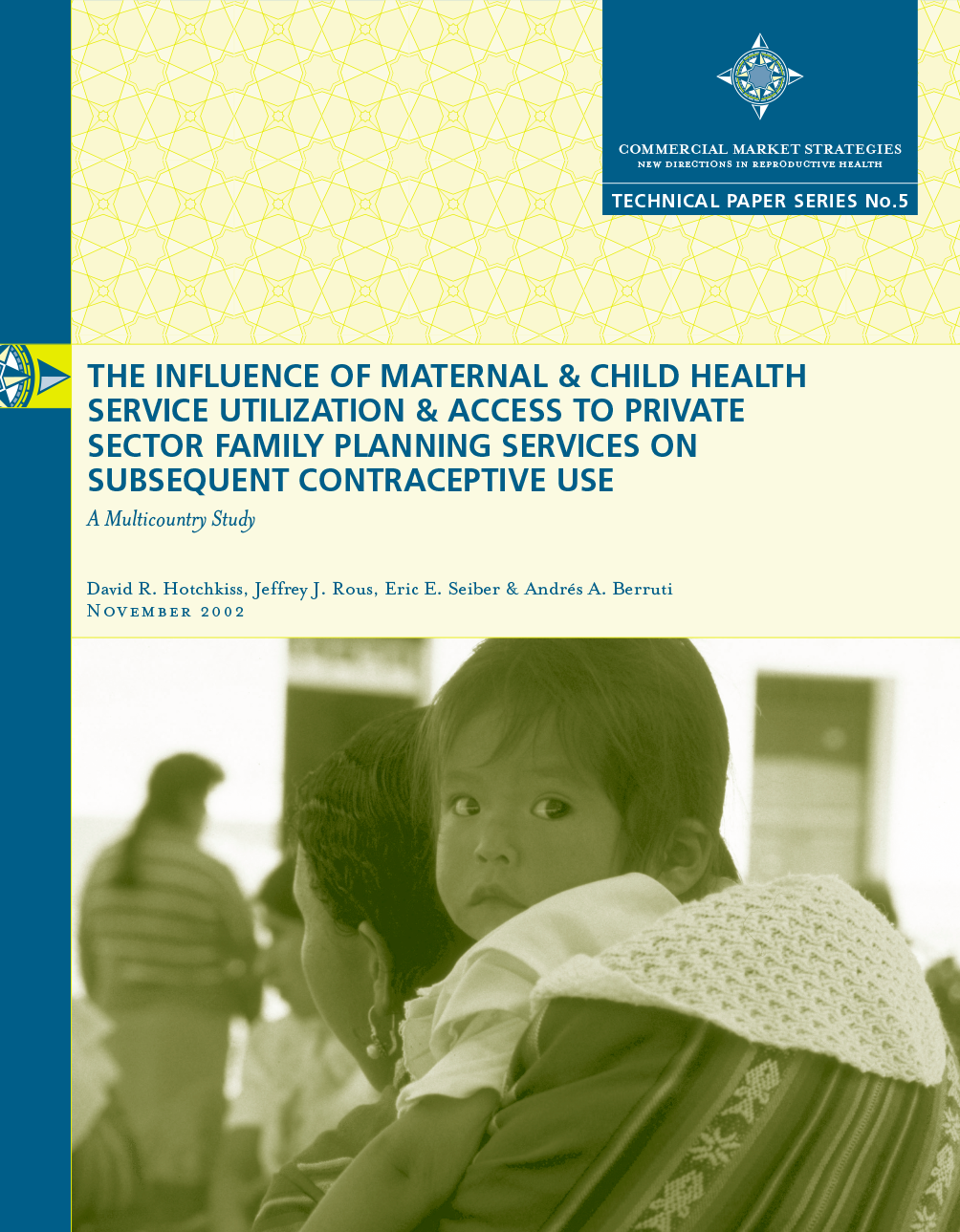
Resource Library
The Influence of Maternal and Child Health Service Utilization and Access to Private-Sector Family Planning Services on Subsequent Contraceptive Use: A Multi-country Study
Does utilization of modern MCH services influence the likelihood of subsequent contraceptive use among women in developing country settings? Does access to private-sector family planning services have an impact on contraceptive use? The answers to these questions have important implications for family planning service delivery strategies. However, the available empirical evidence on these issues is inconclusive. This study re-examines the relationship between the intensity of MCH-service use and contraceptive use in five countries, and the relationship between access to private-sector family planning services and contraceptive use in two countries. The study is based on household survey data and data on the supply environment for health and family planning services gathered during the 1990s in Morocco, Tanzania, Bolivia, Guatemala, and Indonesia. The findings indicate a substantial and apparently causal relationship between the intensity of MCH-service utilization and subsequent contraceptive use, and between access to private-sector family planning services and modern contraceptive use. Policy imulations indicate that sizeable increases in contraceptive prevalence might be realized by increasing the coverage and intensity of use of MCH services, and by improving access to high quality private-sector services.
Resource Type : Other
Country : Bolivia, Guatemala, Indonesia, Morocco, Tanzania
Year : 2002-11-01T16:00:00
Language : English
Project : SHOPS


